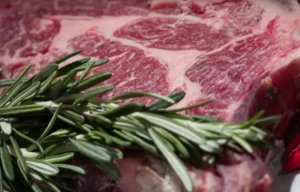
Meaty markets for biobased nanofibres
Cheaper nanofibrous materials can make a true difference in the texture of cell-cultured meat.

21st December 2021
Innovation in Textiles
|
Tallinn, Estonia
Estonia’s Gelatex Technologies has secured €1.2 million in seed round funding to to scale and enhance the production of its nanofibrous 3D scaffolding material for growing cell-cultured meat.
It is estimated that by 2040, 35% of all meat consumed will be cultured and grown from animal cells.
Nanofibres are already widely used for cell cultivation in the medical field, and in growing meat, it is necessary to have a scaffold in order to achieve a steak-like structure.
Other possible solutions for this application have proved too expensive but Gelatex says it can make cultured meat a reality at competitive prices. Its proprietary system for producing nanofibre nonwoven sheets is much more productive than existing electrospinning technology and the unique 3D structure of its material works with many cell lines, meaning it can be used to make pork, beef or fish.
“Scaffolds mimic the extracellular matrix structure in meat, which is very important to grow tissue outside of a host,” explained the company’s CEO Märt-Erik Martens. “We are running multiple pilot projects with eight out of ten of the world’s leading cultured meat producers and have run enough tests by now to know that our cheaper nanofibrous materials can make a true difference in the texture of cell-cultured meat. Today, because of our technology, we are able to easily produce nanofibrous scaffolds at a price of less than €1,000 per kilogram of meat. If we stay true to our ambitions and keep scaling our technology, it will cost only €40 in less than five years. These high-performance materials have never been as accessible as they are today because of our technology.”
He added that popular electrospun and hydrogel solutions currently used on the market are around 90% more expensive than Gelatex product.
“If the currently popular manufacturing solutions persist, lab-grown meat will only be affordable for the richest,” he said.

Business intelligence for the fibre, textiles and apparel industries: technologies, innovations, markets, investments, trade policy, sourcing, strategy...
Find out more